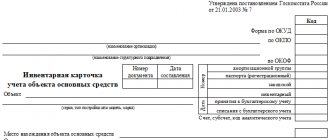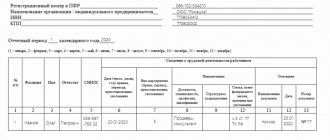According to the order of the Ministry of Labor, a new professional standard for accountants came into force on April 6, 2021. The previously existing one has lost its legitimacy. The current document specifies the characteristics of the qualifications that an employee of an enterprise holding the position of accountant must have. The standard applies to certain types of organizations, as well as those companies where it is introduced by local regulations. It is expected that in the future the ETKS and EKS will be replaced by an adopted document and special requirements for employee qualifications approved at the legislative level.
General information
According to the Standard, the main goal of an accountant’s professional activity is the formation of documented, systematized information about accounting objects in accordance with the legislation of the Russian Federation and the preparation on its basis of accounting (financial) statements that disclose information about the financial position of an economic entity as of the reporting date, the financial result of its activities and cash flows. funds for the reporting period necessary for users of these reports to make economic decisions. It must be said that this formulation reproduces (more precisely, combines) a number of provisions of the Federal Law of December 6, 2011 No. 402-FZ “On Accounting,” which, however, is not surprising. True, Law No. 402-FZ directly mentions only such an official as the chief accountant.
Meanwhile, the Standard, despite its name, divides accounting workers into 4 basic groups (see table). The source of this classification is the All-Russian Classifier of Occupations OK 010-93 (approved by Resolution of the State Standard of Russia dated December 30, 1993 No. 298).
| Classification of the type of labor activity “Accountant” | |
| Basic group | Composite group |
| Heads of financial, economic and administrative divisions (services) | Heads of functional and other departments and services |
| Accountants and finance and credit specialists | Business and HR specialists |
| Accountants | Middle administrative and management personnel |
| Accounting and accounting employees | Employees involved in settlement and accounting operations |
It is noteworthy that “accountants and finance and credit specialists” are included in the subgroup “Other senior professionals,” which also includes lawyers and economists.
The standard establishes the following qualification levels: for accountants - 5, for chief accountants - 6. The description of the levels was approved by Order of the Ministry of Labor of Russia dated April 12, 2013 No. 148n. In terms of powers, these levels require independent activity:
- 5th – for solving practical problems that require independent analysis of the situation and its changes;
- 6th – by determining the tasks of one’s own work and / or subordinates to achieve the goal.
In this case, a 6th level employee is responsible for the result of work performed at the level of a department (in our case, accounting) or organization. He is expected to have the skills to develop, implement, monitor, evaluate and adjust areas of professional activity or methodological solutions.
How are assigned categories regulated?
The assignment of qualification categories to accounting specialists is regulated by the Professional Standard, approved by Order of the Ministry of Labor of the Russian Federation No. 103n dated February 21, 2019, which introduced a new professional standard for accountants, and which must be followed when certifying employees for category assignment.
The norms of the new Professional Standard establish which category an accountant belongs to, taking into account two main evaluation criteria - the specialist’s level of education and work experience in the profession.
Labor functions
A labor function is work in a position in accordance with the staffing schedule, profession, specialty, indicating qualifications, or a specific type of work entrusted to the employee (Article 15 of the Labor Code of the Russian Federation). And an employment contract is an agreement according to which the employer undertakes to provide the employee with work for a specified labor function, and the employee undertakes to personally perform the labor function determined by this agreement (Article 56 of the Labor Code of the Russian Federation).
The standard (Section II) identifies two generalized job functions in the accounting profession:
- accounting;
- preparation and presentation of financial statements of an economic entity.
Please note that the second function includes tax reporting. Thus, tax reporting is classified as financial reporting. And in this regard, there is a “temptation” to extend Law No. 402-FZ to tax accounting. Indeed, the legislator used a compound term - “accounting (financial) statements”, from which two independent parts can be distinguished - “accounting statements” and “financial statements”. However, the interpretation of this terminology introduced by the Standard is unlawful. After all, the Ministry of Labor of Russia, which approved the Standard, is not a federal authority authorized to regulate accounting or taxation. Meanwhile, based on Article 4 of Law No. 402-FZ, the Standard is part of the accounting legislation...
In addition, the second function also provides for internal control of accounting and preparation of accounting (financial) statements. Let us remind you: in accordance with Law No. 402-FZ (clause 2 of Article 19), such control is carried out only by an organization whose accounting (financial) statements are subject to mandatory audit (except for cases where its head has assumed the responsibility for maintaining accounting records). That is, such a labor function is not a mandatory component of the generalized labor function.
We also note that the draft professional standard “Internal Auditor” is currently undergoing approval. In global management practice, internal audit is considered an integral part of the organization’s internal control system. In this regard, it is possible that the corresponding job function of an accountant will be adjusted.
On a note
The Standard reveals an obvious logical inconsistency with Law No. 402-FZ
Namely: in Section II of the Standard, accounting is contrasted with reporting, while from paragraph 4 of Article 6 of Law No. 402-FZ it follows that accounting includes reporting. This is another very serious problem.
According to the Standard, accounting is carried out by an accountant and for this activity a secondary vocational education is sufficient, but at least three years of practical work experience is required - presumably in the status of an employee engaged in accounting operations and accounting. This group includes the cashier and timekeeper. It turns out that in the absence of the necessary experience, a university graduate can only be accepted into the position of such an employee and remain in it for three years. Agree, this is nonsense. It also seems that the labor functions of such employees are not specified in the Standard.
In passing, we note that the Standard does not disclose the content of the labor activity of “employees engaged in accounting operations and accounting.” Presumably, assistant accountants fall into this category. This status and the corresponding labor function are clear to all of us, but they are not recognized by the Ministry of Labor.
Each job function implies:
- labor actions;
- required skills;
- necessary knowledge.
In particular, the performance of the labor function “Acceptance for accounting of primary accounting documents on the facts of the economic life of an economic entity” presupposes:
- labor actions - preparation of primary accounting documents for transfer to the archive;
- necessary skills - to ensure the safety of primary accounting documents before transferring them to the archive;
- necessary knowledge - the basics of the legislation of the Russian Federation on archival affairs; internal organizational and administrative documents of an economic entity regulating the transfer of primary accounting documents to the archive.
We deliberately focused on fulfilling the requirements of the Federal Law of October 22, 2004 No. 125-FZ “On Archiving in the Russian Federation,” compliance with which many accountants neglect.
Take note of how the Standard interprets the “Final summary of the facts of economic life” function. It involves working with accounting registers.
Job responsibilities
The main task of the specialist is to maintain accounting records of property, liabilities and business transactions. The accountant develops activities related to the rational use of resources. Works with primary documentation. Identifies sources of losses and works on solutions to prevent them. Works on preparing costing reports.
Reflects on the accounting accounts transactions that are associated with the movement of cash, inventory, and fixed assets.
Charges and transfers taxes to local, regional and state budgets. Transfers insurance premiums, payments to banking institutions, transfers funds to finance capital investments, employee salaries, other payments, as well as accrual of funds for material incentives for employees.
Formulates the formulation of problems, the solution of which is implemented using appropriate programs.
Forms, maintains, stores databases, makes appropriate changes to the information that is used in data processing.
The accountant is responsible for the safety of documents and their execution. Prepares data for reporting.
Carries out financial and economic analysis of economic activities, develops and implements accounting methods, identifies reserves for increasing the efficiency of economic activities, develops measures, the purpose of which is to improve the circulation of accounting documents. Provides accounting information to the manager.
Depending on the direction of the organization’s work, the accountant’s responsibilities may include working with imports, foreign economic activity, etc. In the latter case, knowledge of documents of foreign economic activity, currency and customs legislation is necessary.
Many people imagine the staffing of an accounting department like this: there is a chief accountant, and there are ordinary specialists. Maybe also a deputy chief accountant. The fact is that everything is not so simple; among ordinary accountants there are also different “levels”. Let's look at what categories of accountants there are, why they are needed and what they depend on.
Chief Accountant
The chief accountant needs a higher or secondary vocational education.
It turns out that an employee with an incomplete higher education (in the absence of secondary vocational education) cannot hold the position of chief accountant. However, in practice, such a situation is not uncommon, because before the Standard came into force, such a restriction did not exist in the general case (the education requirement is imposed in special cases listed in paragraph 4 of Article 7 of Law No. 402-FZ). And the Standard is a generally binding document. Does this mean that chief accountants without proper education are subject to dismissal due to inadequacy for the position held?
An exhaustive list of grounds for terminating an employment contract with an employee is established in Article 81 of the Labor Code. Among them (clause 3), indeed, a similar reason is provided - “inconsistency of the employee with the position held or the work performed,” but with the caveat - “due to insufficient qualifications, confirmed by certification results.” As you can see, lack of qualifications must be confirmed by certification. The procedure for conducting certification is established by labor legislation and other regulatory legal acts containing labor law standards, local regulations. However, since we are talking about certification for the presence of education, it is not regulated by labor law norms and only an educational organization has the right to conduct it.
The Federal Law of December 29, 2012 No. 273-FZ “On Education in the Russian Federation” does not explain how an employer should act in such a situation. Paragraph 3 of Article 7 of the said law only states that persons mastering the basic educational program in the form of self-education have the right to undergo external intermediate and state final certification in an organization carrying out educational activities according to the corresponding educational program that has state accreditation. Obviously, this conflict of interests between the employee and the employer cannot be resolved by local regulations. As a result, according to the author, the dismissal of an “uneducated” chief accountant at the initiative of the employer is impossible. We also remind you: dismissal for “inconsistency” is allowed if it is impossible to transfer the employee with his written consent to another job available to the employer (either a vacant position or a job that corresponds to the employee’s qualifications, or a vacant lower position or lower-paid job).
The author would like to emphasize that she expresses her personal point of view in the absence of official explanations and rather identifies controversial issues than provides answers to them. Of course, the final word belongs to the Russian Ministry of Labor. The position of the Russian Ministry of Finance would also be very interesting. In general, it is strange to introduce professional standards without coordination with the relevant ministry - the Ministry of Finance of Russia. We find no information about such agreement.
On a note
The standard does not have retroactive force and therefore it is impossible to remove the chief accountant from the work he performs due to the lack of proper education.
But you can and should follow the requirements of the Standard after it comes into force - by hiring a new chief accountant. It is logical to ask: what are the consequences if an employer hires a person for this position who obviously does not meet the educational standards? – According to the author, such a situation can be characterized as a “normal economic risk,” which is a circumstance that excludes the employee’s financial liability. The basis is Article 239 of the Labor Code of the Russian Federation. Further, according to the Constitution of the Russian Federation (clause “r” of Article 71), accounting is under the jurisdiction of the Russian Federation. Consequently, this area of activity is of national importance. And the employer’s violation of the requirements of the Standard is an administrative offense provided for in paragraph 1 of Article 5.27 of the Code of Administrative Offenses of the Russian Federation. And it entails a warning or a fine - for officials in the amount of 1,000 to 5,000 rubles, for legal entities from 30,000 to 50,000 rubles. Please note that from January 1, 2015, this norm is in force in a new edition introduced by Federal Law No. 421-FZ of December 28, 2013. And we will find a mitigation of liability: previously, the legislator did not provide for such a form as a warning; The administrative suspension of the activities of a legal entity for a period of up to 90 days has been cancelled.
As for the requirements for the practical work experience of the chief accountant, here the Standard mechanically copied the norm established by Law No. 402-FZ (clause 2, clause 4, article 7). But in Law No. 402-FZ, this requirement applies only to chief accountants of economic entities of certain categories. And after reading the Standard, one is left with the impression that it has extended this requirement to all organizations. Meanwhile, paragraph 5 of Article 7 of Law No. 402-FZ clearly states: additional requirements for the chief accountant (in excess of those established by Law No. 402-FZ!) may be established by other federal laws. But not a by-law adopted by the Russian Ministry of Labor.
The chief accountant must know the industry legislation in the area of activity of the organization.
Additional educational programs
The standard allows for the possibility of additional professional education: for an accountant - according to special programs, for a chief accountant - according to advanced training and professional retraining programs. What is meant by such programs? — For the answer, let’s turn to the law on education.
Additional professional programs are advanced training programs and professional retraining programs (clause 2, clause 4, article 12 of Law No. 273-FZ). As for special educational programs, they are provided for students with disabilities (clause 3 of article 79 of Law No. 273-FZ). In most cases, various accounting courses do not provide additional professional education.
According to the author, the Standard does not indicate whether the presence of a document on professional retraining is a sufficient condition for working as a chief accountant. Advanced training presupposes its original existence.
Offer the selected candidate to the employer
What options are there?
- A candidate who wants to get such a position (chief accountant) can personally come to the appropriate office of the enterprise, but he needs to know that such a vacancy exists (you can find out from the Internet or any newspaper).
- The candidate may be invited by the director of the enterprise himself. The person is required to submit his business papers (resume, etc.). You will need to indicate all previous places of work, if any. It is best if the candidate has experience. For previous places of work, a so-called check of the individual’s professionalism will be carried out.
At these stages, the test for admission to the position is carried out.
Entry in the work book
The appearance of the Standard makes you wonder whether the requirements for entries in the work book will change?
Based on clause 3.1 of the Instruction, approved by Resolution of the Ministry of Labor of Russia dated October 10, 2003 No. 69, an entry is made in the work book about the specialty, profession, indicating qualifications.
Professional standards are subject to application by employers when forming personnel policies. Therefore, the entry in the work book of the employee performing the corresponding job function must comply with the Standard. But what, for example, should we do with the position “deputy chief accountant,” which is common in large companies? It is not provided for by the standard.
Another problem arises, no less serious. Law No. 402-FZ (clause 3 of Article 7) allows you to assign accounting responsibilities not only to the chief accountant, but also to another official of the organization. Often the labor functions of the chief accountant are performed by the financial director. But the Standard strictly linked qualifications to two specific positions - “accountant” and “chief accountant”. And thereby essentially obliges the organization to have a chief accountant - by introducing this position into the staffing table.
Finally, based on the Standard, we can conclude that an individual entrepreneur does not have the right to have a “simple” accountant on staff, since tax accounting must be carried out by no less than a chief accountant.
Introduction of professional standards
As noted, at the beginning of 2021, government institutions, as well as other state and municipal institutions, had to implement action plans for the implementation of professional standards: to establish, in particular, whether the requirements of professional standards are mandatory for employees of their organization, including chief accountants , conduct an analysis of the professional qualities of employees for compliance with these requirements, and also draw up plans for employee training and additional professional education within the budget for the corresponding year.
The Ministry of Labor reminded about this back in 2021 (Letter dated 04/04/2016 No. 14-0/10/B-2253). For chief accountants of government institutions, the qualification requirements established by the professional standard are recommendations. However, if the employer is interested in competent employees, he can apply professional standards when developing job descriptions, recruiting personnel, organizing training, certification, etc. Accordingly, he can include in the job description of the chief accountant the knowledge, skills and functions established by the standard, as well as qualification requirements.
After changes are made to the job description, new employees will need to be hired in accordance with these requirements.
Let's sum it up
The document is very significant for the accounting industry, but its use raises a number of serious questions. One could turn a blind eye to the shortcomings of the Standard, but it is registered with the Russian Ministry of Justice. It is impossible not to apply the Standard in part that contradicts Law No. 402-FZ. Challenging regulatory legal acts is carried out in the manner established in Chapter 24 of the Arbitration Procedure Code.
In conclusion, let us inform you: professional standards for auditors and tax inspectors have also not yet been published and the author has not found any projects for them. It is curious that in the All-Russian Classifier of Occupations OK 010-93 these professions are not directly named. It features "state tax officials" and "state welfare and pension employees." Also mentioned is the “accountant-auditor (auditor)”, who is classified in the basic group “accountants and finance and credit specialists”. Finally, the All-Russian Classifier of Worker Occupations, Employee Positions and Tariff Grades OK 016-94 (introduced by Decree of the State Standard of Russia dated December 26, 1994 No. 367) provides for an “accountant-expert”. This type of accountant is not mentioned in the Standard. Apparently, the requirements for all “non-chief” accountants are the same.
E.Yu. Dirkova
, for the magazine “Regulatory Acts for Accountants”
If you have a question, ask it here >>
How to increase the rank?
To move to the next level of qualification, you need to improve your professional level.
This applies both to formal characteristics, for example, achieving a certain length of work experience, and to professional competencies.
A specialist without experience, as a rule, can only apply for the initial position of an “uncategorized” accountant. This primarily applies to budgetary institutions, where compliance with formal requirements is strictly regulated.
In commercial companies, different options are possible. If there is a vacancy, and a new candidate has confirmed that his qualifications meet the requirements, then he can immediately receive a “category” position.
To move to another “level”, candidates usually undergo a certification procedure. This applies to both budget and most commercial companies (especially large and medium-sized ones).
Any special “certificates” or identifications are usually not issued based on the results of certification; its results are reflected only in the internal documents of the organization.
What an accountant should know and be able to do today






